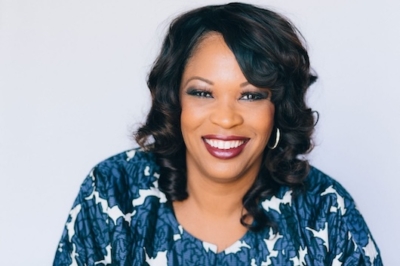
Building Women Leadership Roles in Life Sciences
There’s often a lot of discussion about the lack of representation of women in corporate leadership roles. But at the beginning of 2020 in the U.S., we saw gradual improvements in this area. According to a recent study by McKinsey and LeanIn.Org, from 2015 to 2020, the number of women in SVP roles grew from 23 to 28 percent, while women in C-suite positions increased from 17 to 21 percent. This is not a huge improvement, but it is some progress nonetheless.
What has challenged this progress recently is COVID-19. With boundaries between work and home life continuing to erode, more and more people are finding it difficult to juggle all of their responsibilities while dealing with the added stress of financial insecurity. Unfortunately, this has led to women being more likely to have been laid off or furloughed during the pandemic. One in four women have also considered reducing their work hours, finding less demanding jobs or leaving the workforce altogether.
In fact, this is the first time in the last six years that women appear to be leaving the workforce at higher rates than men, and it illustrates a significant setback to the progress that has been made in fostering female leaders of the future.
I can’t help but relate the current state of our workforce to what we do at eClinical Solutions. Just as we’re constantly finding new ways to innovate and transform clinical data management, we’re also turning our attention to how we can improve female representation within our industry. This goal is one of the main reasons why I became a part of the Chief program. Chief is a network of C-level or rising VPs dedicated to connecting and supporting other women in leadership positions.
Helping other women in their careers and increasing female representation in life sciences, especially women of color, are two things I’m extremely passionate about. That’s why I’m an active participant in organizations like the Healthcare Businesswomen’s Association and Women of Color in Pharma, as well as a Board Member of the Central Connecticut Coast YMCA and a Member of the Delta Sigma Theta Sorority Inc. I also understand the work that’s involved in moving up the ranks. That work begins with a strong education. I earned my Bachelor of Science degree in Computer Science from Alabama Agricultural and Mechanical University and later received a Master of Science degree in Computer Science with Advanced Applications from the University of New Haven.
This technical foundation would pave the way for years of advancement in the life sciences sector. When I first started my career, I was a programmer for a government contractor at a national laboratory. I eventually moved on to Bayer, where I worked my way up from a programmer to an associate director role. In that position, I worked on Bayer’s clinical data management systems initiatives, which involved vendor selection and management, and led the global change management efforts to create new processes and train users across clinical sites.
My time at Bayer served me well, because that experience could be applied here at eClinical. After I was recruited to join the company, I quickly scaled the Professional Services unit with a focus on EDC solution deployment and support. My recent promotion from Executive Vice President of Professional Services to Chief Delivery Officer of Data Services places me in the unique position of developing global initiatives for new services to grow eClinical’s footprint.
We’re in a new age of clinical development, where the focus on finding important therapies quickly depends on high quality data that can be harnessed and leveraged with innovative technologies. Part of achieving our goal in shortening trial timelines is to have teams with clinical trial expertise to support the technology implementations that can lead to improved data access and decision-making.
Those teams must be diverse and inclusive. If they’re not, we’re missing a real opportunity to drive growth in the life sciences industry. Innovation occurs when all perspectives and experiences are valued and considered, and that’s exactly why encouraging women to take on leadership roles is so important.
I am deeply embedded in the technical aspects of my role at eClinical, and I speak the language of my team and my clients. That’s one of the reasons why I’ve been so fortunate to find success throughout my career and why I’ve been able to help our clients proactively manage their clinical studies. By championing greater participation from women who have meaningful contributions and expertise in their fields, enabling access to education and clearing the hurdles for women to access leadership roles, we’ll be able to blaze a path for better processes and outcomes across all industries. In clinical research and drug development, when improved outcomes can lead to a patient receiving a new treatment sooner, that’s when innovation truly matters — and it’s precisely why diversity in leadership is so important.
Author

Katrina Rice is an accomplished Chief Delivery Officer with an impressive career that spans over 25 years and includes advancement into increasingly demanding leadership roles. With a solid history of leading business transformations and managing global portfolios, she is as much at home scaling operations as she is in developing strategies that drive revenue growth. At eClinical Solutions, Katrina was recently promoted from Executive Vice President of Professional Services to Chief Delivery Officer. She has previously held various technical roles at Lockheed Martin Energy Group and Bayer. Katrina holds a Bachelor of Science degree in Computer Science from Alabama Agricultural and Mechanical University and a Master of Science degree in Computer Science with Advanced Applications from the University of New Haven. In her free time, Katrina is an active participant of Chief, a private network for women in senior leadership roles, Treasurer in her church where she oversees all financial aspects and a Member of the Delta Sigma Theta Sorority Incorporated, a not-for-profit organization dedicated to public service with an emphasis on programs that assist the African American community.
By submitting, you agree to the processing of your personal data by eClinical Solutions as described in our Privacy Policy.






